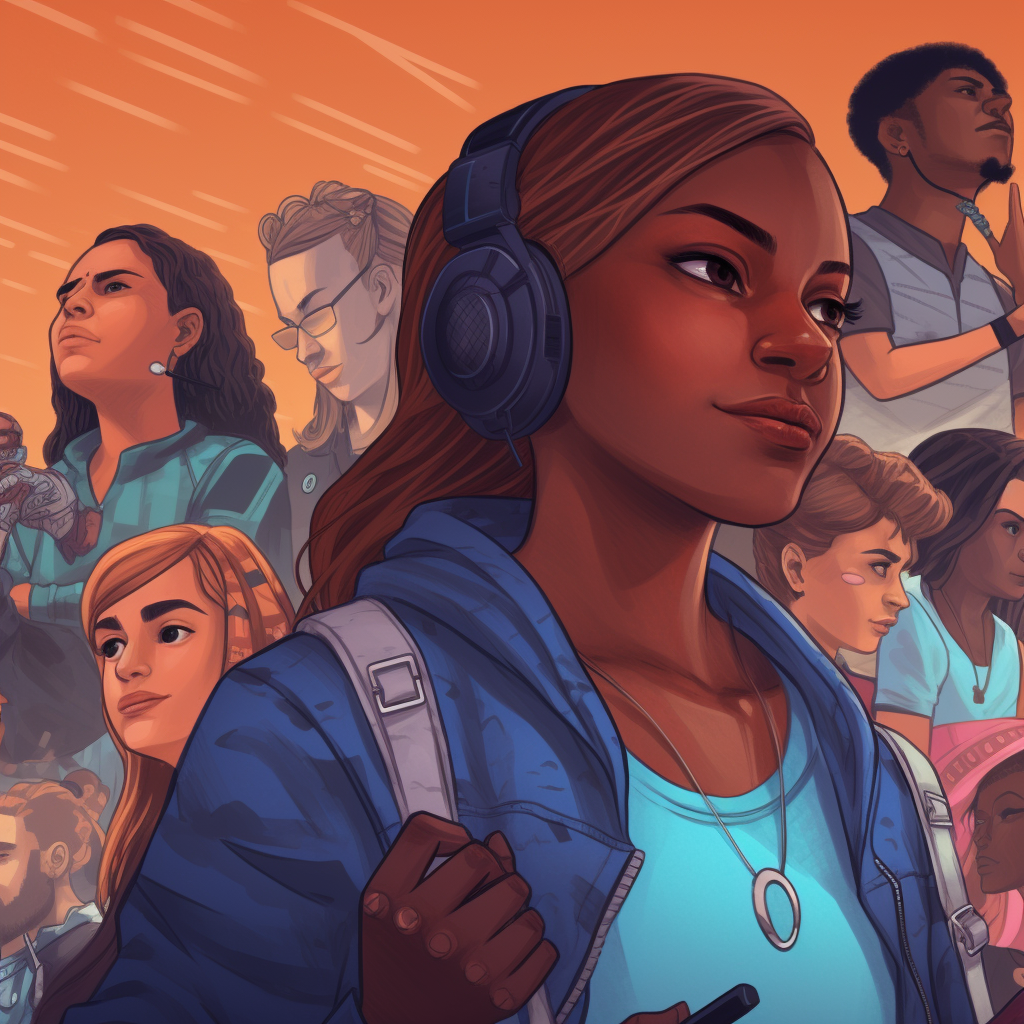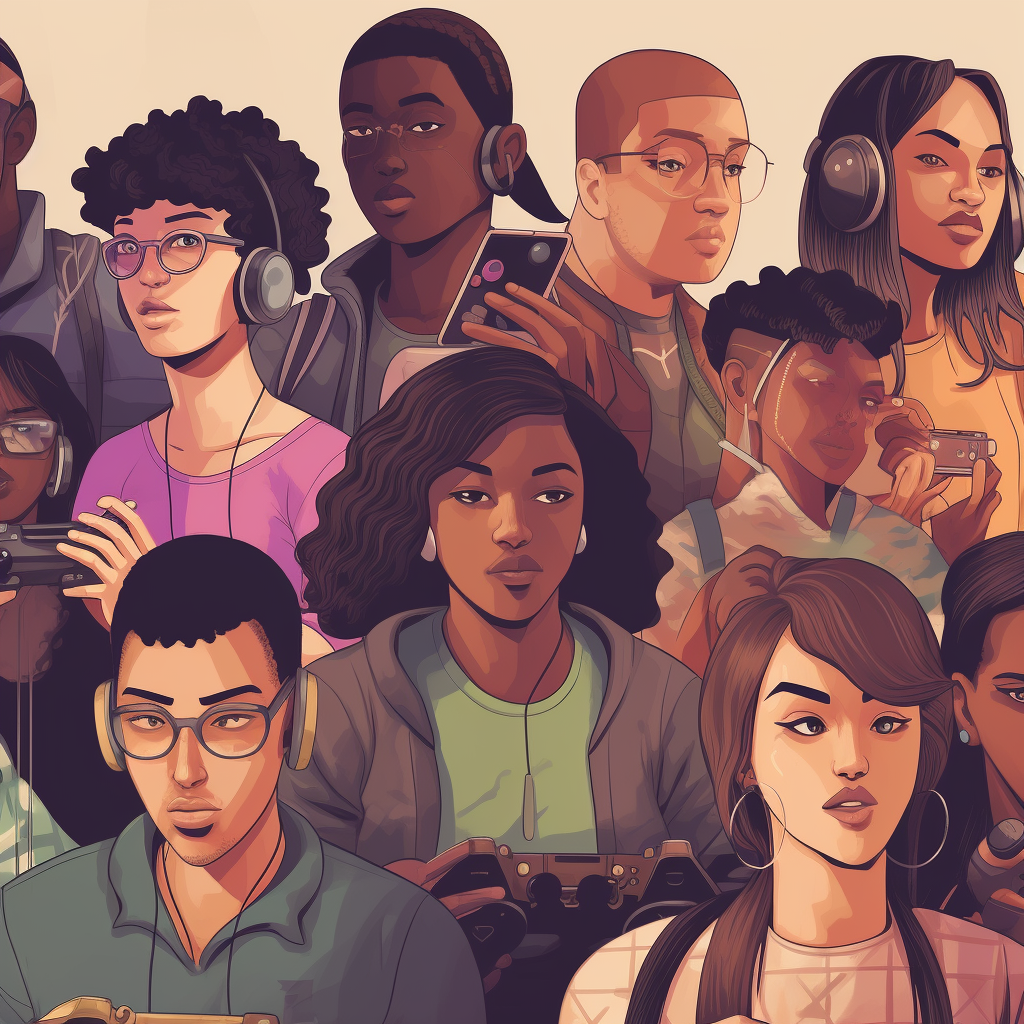The video game industry has grown far beyond its days as an entertainment hobby; over the past several decades, it has gained worldwide recognition and popularity. But even today, there’s still work to be done when it comes to encouraging diversity in gaming development and ensuring a more inclusive atmosphere within the industry. This important topic not only impacts those directly involved in creating games but also gamers of all backgrounds. To truly understand why diversity matters in gaming, and how we can move forward with making progress, let’s explore what opportunities exist for everyone–from independent developers to large publishers to players alike–in being more inclusive.
An Overview of Diversity and Inclusion in the Video Game Industry
The video game industry has seen rapid growth in recent years with more and more people joining the community. With this growth, there has been a rising need for diversity and inclusion. Today, the gaming industry is making efforts to represent a wide variety of cultures, backgrounds, and experiences in games. This shift towards inclusivity is not only important, but it also opens doors for new and different perspectives that can enhance the gaming experience for all users. Furthermore, this is not just about the characters in the game but about the people making and publishing them. The industry is becoming more aware of the importance of diversity amongst developers; different backgrounds can offer diverse solutions to problems giving different ways to approach game development. It’s clear that diversity and inclusion are essential if the video game industry is to continue to grow and remain relevant.
Factors Contributing to the Lack of Diversity and Inclusion in Video Games
Despite the growing conversations about diversity and inclusion in the video game industry, it still struggles with representation across the board. This lack of diversity and inclusion is a result of several factors, including the homogenous hiring practices of game studios, the predominance of male creators who often lack an understanding of female perspectives, and overall systemic discrimination within the industry. Additionally, large-budget games often prioritize financial gain over representation, leading to the perpetuation of stereotypes and a lack of inclusivity. Addressing these underlying issues will require a major shift in the industry’s hiring practices, greater consideration of marginalized communities, and a more intentional prioritization of diversity and inclusivity at all levels of game development.
Strategies for Improving Diversity and Inclusion in Video Games
Video games have come a long way in terms of diversity and inclusion, but there is still work to be done. One strategy for improving diversity and inclusion is to create more diverse character options for players, including different races, genders, and sexual orientations. Another strategy is to have more diverse development teams, as different perspectives and experiences can bring new ideas and insights to the table. Additionally, implementing inclusive language and avoiding harmful stereotypes can help make games more welcoming to everyone. By taking these steps, the gaming industry can continue to progress toward a more inclusive and diverse future.

The Benefits of a Diverse and Inclusive Video Game Industry
The video game industry has come a long way since its inception, but there’s still much to be done when it comes to diversity and inclusivity. Fortunately, changes are being made, and the benefits of a more diverse and inclusive industry are numerous. For one, it leads to better representation in games, allowing players to see themselves or those similar to them in the characters they play. It also expands the industry’s potential audience, bringing in new players who may have previously felt excluded. Furthermore, diverse teams can bring a variety of perspectives and ideas to the table, resulting in more creative and innovative games. With more and more companies recognizing the importance of diversity and inclusivity, we can hope to see a bright future for the video game industry.
How Consumers Can Support More Diverse and Inclusive Games
As the gaming industry continues to evolve, there is a growing emphasis on diversity and inclusivity in games. Consumers can play a significant role in supporting this movement and encouraging developers to create more diverse games. One way to do this is to actively seek out and purchase games that feature diverse characters and storylines. Additionally, consumers can engage in discussions online and on social media platforms to highlight the importance of diversity in games and push for change. By speaking up and showing support for more inclusive games, consumers have the power to shape the future of the gaming industry.
The Future of Diversity and Inclusion in the Video Game Industry
The video game industry is ever-evolving, and so is the conversation around diversity and inclusion within it. As the industry continues to grow and expand, it’s crucial that representation and inclusivity remain at the forefront of game development. This means creating characters and storylines that reflect a variety of races, genders, sexual orientations, and abilities, as well as ensuring that game development teams themselves are diverse. Gamers want to see themselves reflected in the games they play and want to know that their favorite developers are committed to fostering a welcoming and inclusive environment. As we move into the future, it’s heartening to see more and more game developers taking steps to embrace diversity and inclusion. However, there’s still much work to be done, and we must remain vigilant and keep pushing for progress in this important area.
As the video game industry continues to grow and become more inclusive, it is important for everyone involved to make sure that diversity and inclusion are front and center. This means educating ourselves on the issues, participating in conversations for change, and supporting a diverse group of voices both behind the scenes, in marketing, and at the forefront. Although there is still much progress to be made in creating a gaming environment that celebrates individuals from all walks of life, we can all take small steps now to help create a better future. We can cultivate an atmosphere of respect that encourages different perspectives while continuing to create stories and experiences that bring joy to people around the world. Ultimately, diversity and inclusion play an essential role in fostering a richer gaming landscape that all gamers can enjoy.




